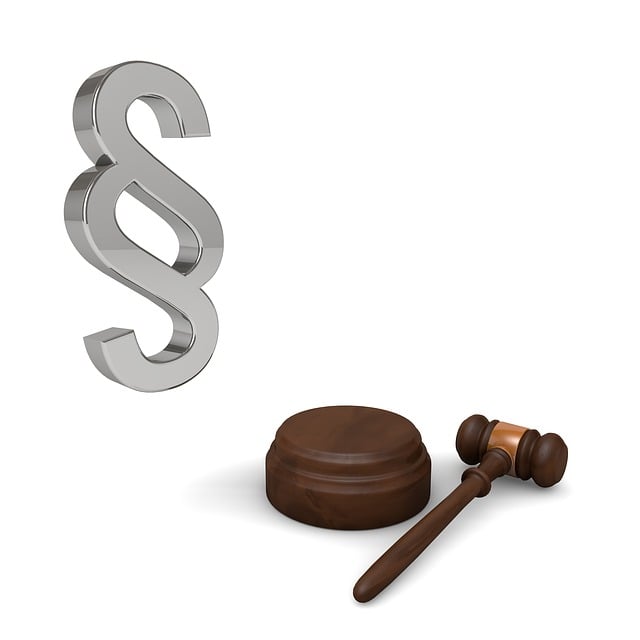Corporate Crime Investigations focus on white-collar and economic crimes, aiming for justice and compensation through civil litigation rather than punishment. This involves a meticulous review of company records, transactions, and policies to build robust evidence. "Understanding Consumer Rights in Civil Litigation" is crucial for holding corporations accountable while ensuring fairness and transparency, particularly in high-stakes white-collar defense cases. Skilled investigators use advanced technologies like data analytics and forensic accounting to uncover misdeeds, balancing thorough scrutiny with individual rights protection. Consumer protection laws not only safeguard individuals but also maintain market integrity, deter malicious activities, and minimize complex investigations.
Corporate Crime Investigations delve into illicit activities within organizations, focusing on consumer rights violations. This complex field intersects with civil litigation, where individuals seek justice for harm caused by corporate misconduct. Understanding the nature of these investigations is crucial to grasping how evidence and legal frameworks protect consumer rights. By examining prevention strategies and consequences, we can appreciate the vital role of corporate accountability in safeguarding the public from harmful practices.
- The Nature of Corporate Crime Investigations
- Consumer Rights and Civil Litigation: A Connection
- Uncovering Misdeeds: Evidence and Legal Frameworks
- Prevention and Consequences: Protecting the Consumer
The Nature of Corporate Crime Investigations

Corporate Crime Investigations delve into complex issues facing modern businesses, focusing on white-collar and economic crimes that often have profound impacts on consumers and their understanding of their rights. These investigations uncover misconduct ranging from financial fraud to antitrust violations, emphasizing the need for accountability in corporate practices. Unlike criminal cases that may lead to jail time, civil litigation involving consumer rights seeks a complete dismissal of all charges, with the primary goal being compensation and justice for affected individuals.
The process involves meticulous examination of company records, financial transactions, and internal policies to build robust evidence. Investigators must navigate a labyrinthine web of legal complexities while ensuring transparency and fairness in their methods. By understanding consumer rights within this civil litigation framework, investigators can hold corporations accountable for their actions, thereby fostering trust and safeguarding the interests of those whose rights may have been violated.
Consumer Rights and Civil Litigation: A Connection

In the realm of corporate crime investigations, understanding consumer rights within civil litigation is paramount. Consumer rights protect individuals from unfair business practices and ensure transparency in transactions. When a corporation violates these rights, it can lead to significant legal repercussions for the company, including civil lawsuits. These lawsuits serve as a powerful tool to hold businesses accountable, compensating affected consumers and deterring future misconduct.
The connection between consumer rights and civil litigation is crucial, especially in the context of white-collar defense. Corporate and individual clients often face charges related to fraud, misrepresentations, or other forms of deception that adversely impact consumers. By recognizing and enforcing consumer rights, legal strategies can focus on avoiding indictment while ensuring just outcomes for all parties involved. This balance between accountability and fairness is essential in navigating the complex landscape of civil litigation within the white-collar defense sector.
Uncovering Misdeeds: Evidence and Legal Frameworks

Uncovering misdeeds within corporations requires a meticulous process, where evidence plays a pivotal role in shaping the outcome of legal proceedings. In corporate crime investigations, the focus often shifts to financial records, digital data, and witness testimonies as key pieces of evidence. Advanced technologies like data analytics and forensic accounting help in sifting through vast amounts of information to identify anomalies and patterns indicative of fraudulent activities or other illicit practices.
The legal frameworks governing these investigations are intricate, balancing the need for thorough scrutiny with the protection of individual rights. Understanding consumer rights in civil litigation is paramount, especially when high-stakes cases involving white-collar defense come into play. Skilled investigators and attorneys work collaboratively to navigate these complex landscapes, aiming for winning challenging defense verdicts while ensuring justice is served.
Prevention and Consequences: Protecting the Consumer

In the realm of corporate crime investigations, understanding consumer rights is pivotal to protect the vulnerable from high-stakes cases of deception and fraud. When businesses violate these rights, it not only impacts their reputation but also leads to severe legal consequences. Consumer protection laws are designed to ensure fair practices in civil litigation, empowering individuals to seek justice when their rights are infringed upon. These laws act as a deterrent, making corporate and individual clients think twice before engaging in malicious activities that could result in jury trials and significant financial penalties.
By holding businesses accountable for their actions, these legal frameworks aim to maintain market integrity and safeguard consumers’ interests. This proactive approach not only prevents future misconduct but also ensures that victims receive adequate compensation for any harm caused. In the end, it fosters a culture of ethical business conduct, where companies prioritize consumer welfare, thereby reducing the likelihood of intricate and costly investigations and legal battles.
Corporate crime investigations are multifaceted, requiring a deep understanding of both criminal law and consumer rights. By examining evidence within legal frameworks, investigators can uncover misdeeds that often have far-reaching consequences for consumers. Protecting consumer rights through civil litigation strengthens the legal toolkit against corporate misconduct, ensuring businesses operate with integrity and transparency. For a comprehensive approach to combating corporate crime, it’s essential to explore the intricate connection between consumer rights and civil litigation, thereby fostering a more robust and just marketplace. Understanding consumer rights in civil litigation is key to navigating this complex landscape and upholding ethical business practices.






